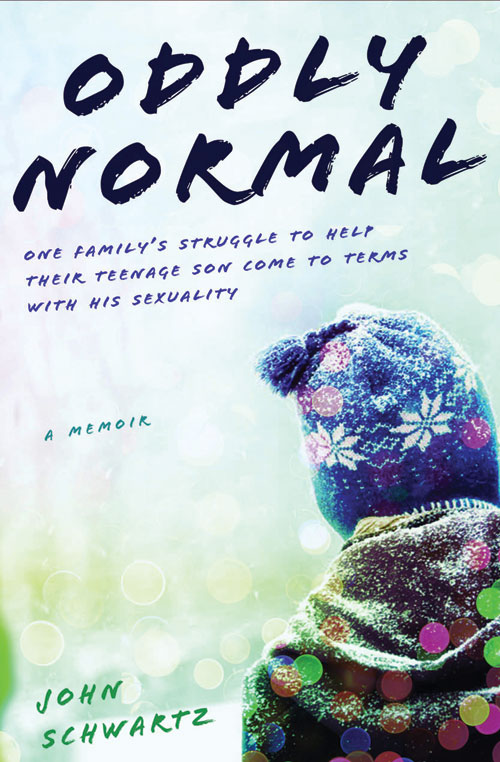
Oddly Normal by John Schwartz
(Gotham Books 2012). $26; 290pp.
When we’re born, our parents count our fingers and toes. They lovingly stroke our skin, look into our faces and wonder what might become of us. That was certainly true of John Schwartz, though in his memoir Oddly Normal, he explains how some real battles laid elsewhere.
In retrospect, Schwartz realized that there was plenty of warning before his son, Joe, overdosed on pills. Joe, born in 1996, became a smiley child with a flair for drama and a love of feather boas, fabulous fashion dolls and shiny baubles.
At age 3, he asked to dress as a “disco yady” for Halloween. That’s when the Schwartzes began to wonder if their toddler was gay.
If he was, John and Jeanne couldn’t have loved Joe any less. They had grown up with gay friends and relatives in Texas. But they had seen a lot of anti-gay behavior, too. They felt equipped to help steer their son through life if he had been born with his “sexual identity in place from the get-go.”
When it came time to enter school, Joe went happily. He’d been assigned a teacher who was excited to have in her class an extremely bright kid with an incredible vocabulary, intense curiosity and a voracious reading habit. Sensing that the dolls were no longer appropriate, Joe’s parents put them away. “We had built his first closet,” Schwartz writes.
As his school career progressed, however, Joe began feeling isolated. His problems worsened through each progressive grade, and his often-explosive anger wasn’t just directed at peers, but at teachers, too. The Schwartzes reached out to Joe’s “League of Gay Uncles” to try to understand what was happening. He hadn’t come out to his parents yet, but there were “big honking clues” as John recounts, and the Schwartzes were encouraged to let Joe “have his moment” without being pushed.
And then, at age 13, Joe Schwartz overdosed.
I liked Oddly Normal, but while Schwartz gives readers a sense of what it’s like to raise a child who wrestles with identity issues, it can be alarming to see the misconceptions, miscommunications and roadblocks that the Schwartzes endured. What bothered me were the parts that felt needlessly repetitive. Schwartz gives us an expansive timeline — often too expansive. That caused me to lose interest now and then, since it chipped at an otherwise lively memoir.
Still, the story has merit, if only for its solidarity for worried parents. If you’re helping a child or teen who’s struggling with being gay, then Oddly Normal is a book to get your hands on.
— Terri Schlichenmeyer
This article appeared in the Dallas Voice print edition March 1, 2013.

